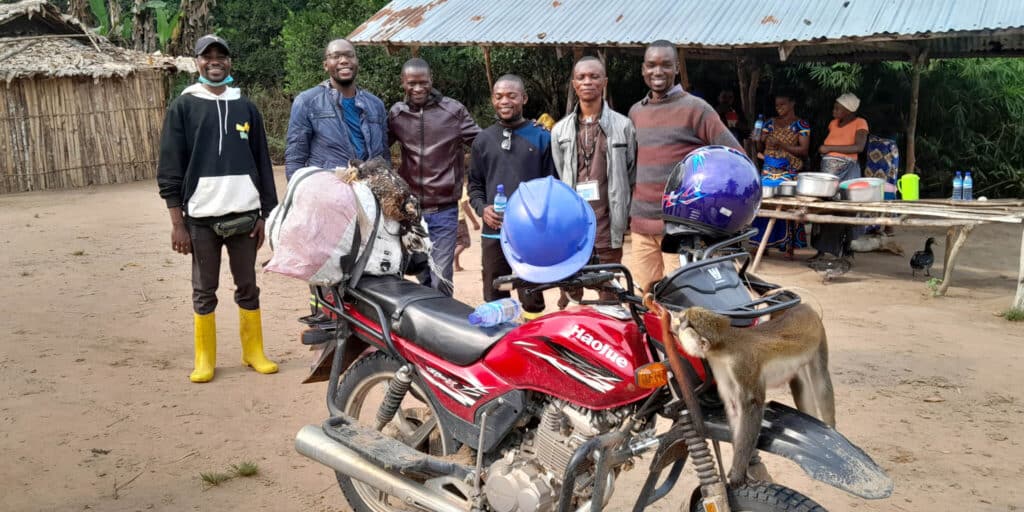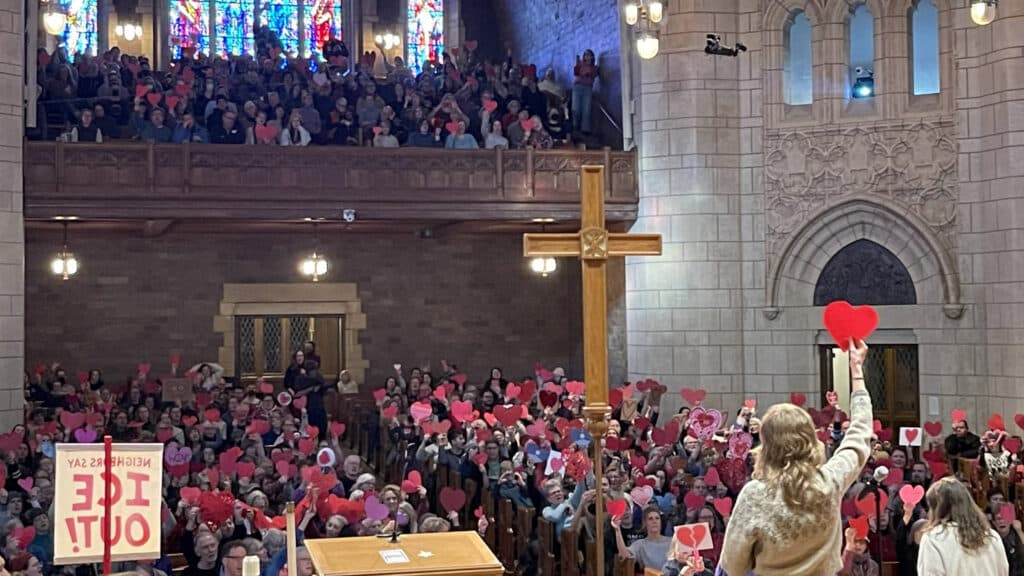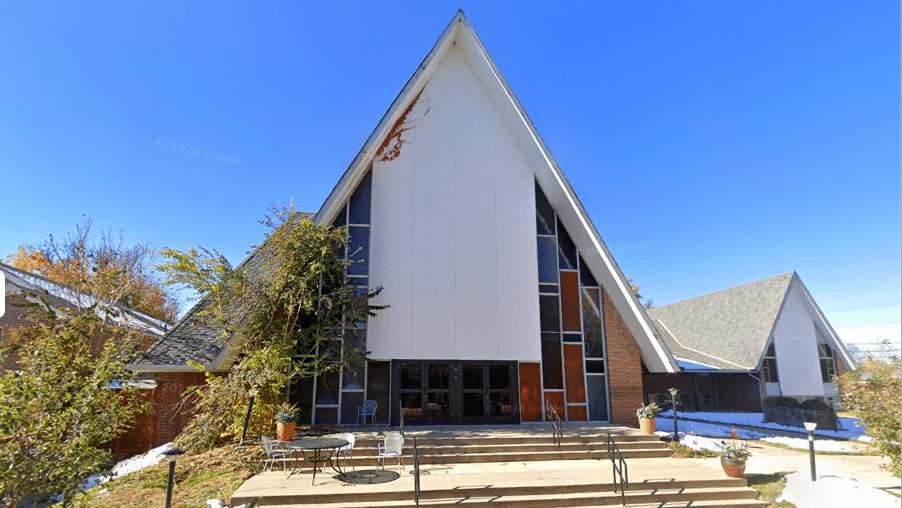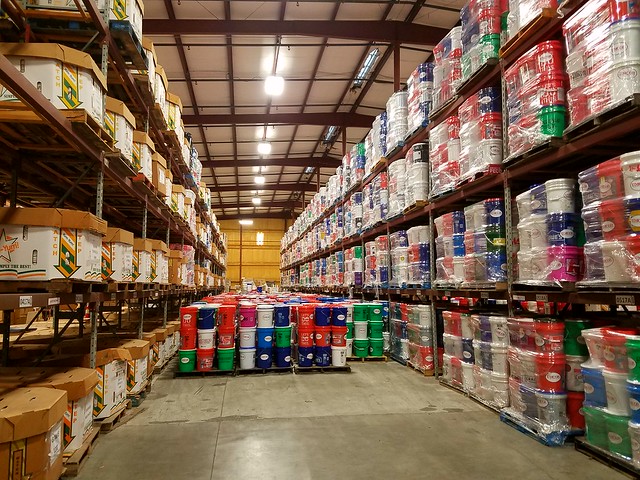KINDU, EAST CONGO, DRC – My family and our church family is truly filled with optimism and renewed energy this year. My wife, Chido, and I are incredibly blessed with the arrival of our healthy baby girl. She brings us immense hope, strength and a deepened sense of responsibility. This same energy fuels our missionary work in the East Congo region.
Initiatives like ours play a vital role in rural development. Despite facing numerous challenges establishing the groundbreaking Yambasu Agriculture project in a marginalized region of Eastern Congo, we’re starting to see positive results. Our market gardening project focusing on vegetables like eggplants, tomatoes, peppers and green mealies (young, green corn cobs) has begun to bear fruit, and the harvest was successfully sold at the market. We’ve also had our first successful farrowing with our sows.
Looking ahead, we’re excited to increase our livestock population, strengthen our farm infrastructure and modernize our production technologies in a way that’s both robust and sustainable. These developments bring a thrilling sense of anticipation as we look forward to continued growth.
As we approach the end of Lent and enter Holy Week, we want to uplift your spirits and remind you of the significance of this period. Remember, even when we feel weak, our Lord grants us renewed strength.
Better farming methods raise crop levels
In February 2023, the Yambasu Agriculture Initiative project steering committee journeyed from Kindu to Okasa and Penesula, Democratic Republic of the Congo (DRC), to start maize harvesting on 26 hectares (about 64 acres) of land. The maize seeds used were the local Samaru open-pollinated variety obtained from SENASEM, a government institution.
Notably, local farmers in this pristine tropical biome seldom utilize hybrid seed maize and conventional farming practices. Our focus remains on promoting enhanced crop production methods while upholding a harmonious blend of ecological sustainability and food output.
Though I am the missionary working with the episcopal area, Richard Okoko is the East Congo Yambasu Initiative coordinator. We work together in all aspects of the program.
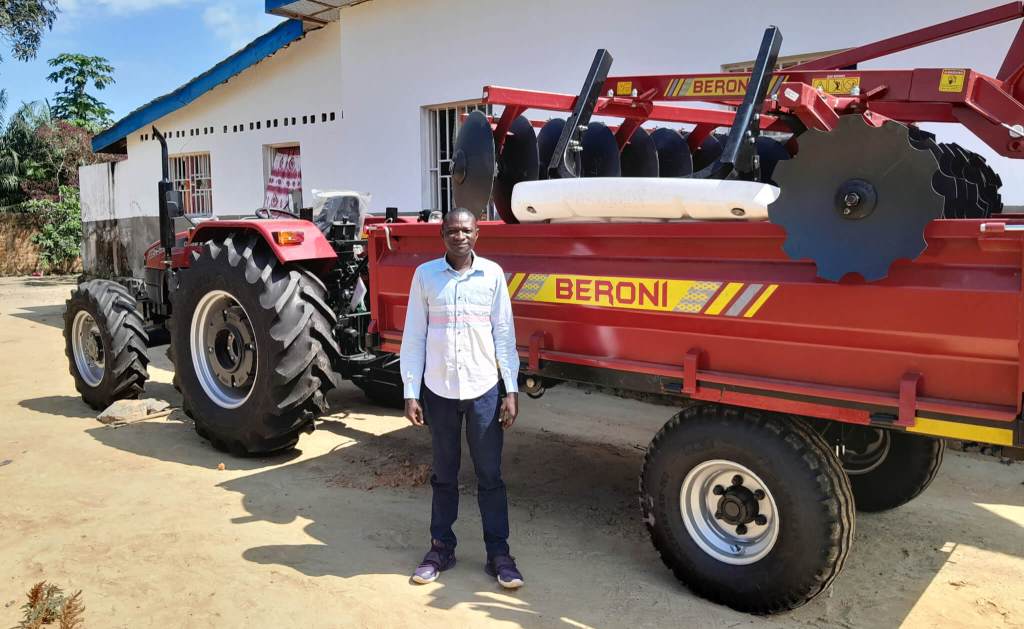
After receiving the Yambasu Agriculture Initiative grant, we were able to purchase a Case IH Farmall JXM75 tractor, a three-disc plough, a 20-disc harrow and a five-ton trailer. The tractor and its implements have a significant operating cost in a rural and remote setting like Maniema. However, we have a significant edge over most farmers who do not have these tools. Over 90% of farmers in this region practice subsistence farming with simple tools like machetes for forest clearing and hoes for digging.
I keep in mind always the words of Zechariah 8:12-13, “The seed will grow well, the vine will yield its fruit, the ground will produce its crops, and the heavens will drop their dew. I will give all these things as an inheritance to the remnant of this people. Just as you, Judah and Israel, have been a curse[a] among the nations, so I will save you, and you will be a blessing. Do not be afraid, but let your hands be strong.” (NIV)
Partnerships aid survival
In July 2023, over 4,000 survivors of war in Eastern Congo received emergency relief supplies provided by the Disaster Management Office, under the leadership of Mr. Jean Tshomba, supported by the United Methodist Committee on Relief (UMCOR). Bishop Gabriel Unda oversaw the distribution of food supplies in Rutshuru, Masisi and Goma during the annual conference session.
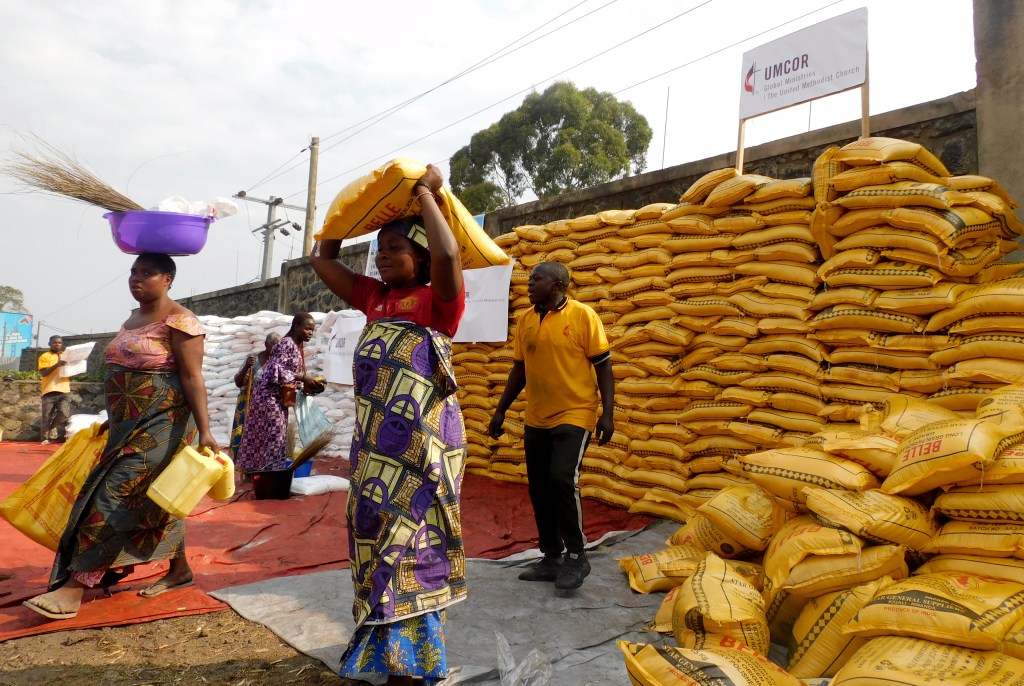
In addition to UMCOR, East Congo also partners with CONNEXIO, the Swiss-based UMC-related mission and development agency. I collaborated with Jean Paul Dietrich of CONNEXIO, a colleague United Methodist missionary, to provide support for a project in Maniema province. I offered technical expertise to help the beneficiaries of the food security efforts in Okasa and Kesanga build their agricultural capacity. This includes help with navigating the market and organizing support groups.
The only way we had to transport the seeds and herbicides, machetes, boots, raincoats, hoes, picks and pitch forks, among other things, was to load them all up on our motorcycles. We were a sight. Mostly young people from two communities received seed inputs and training.
The gift of water
Another partner in our Methodist family, Hong Kong Methodist Church, helped to rehabilitate a borehole with the UMC Lokole Mission Station in Kindu, which had been dysfunctional for 6 months. Rey Oliver Fabros and the Hong Kong Methodist Sunday School helped to raise funds to fix the leaky pipes and galvanized metal reservoir. This borehole serves numerous buildings, including the Maman Lynn training centre, which provides support for women who have experienced violence and abuse, an orphanage, offices and surrounding households.
In this community, over 200,000 people access water by fetching it from community boreholes. These community wells are vitally important for clean, potable drinking water, but they are also places where lots of human interaction takes place every day. This may well be where young adults meet their future spouses, where friends exchange news and extended families share updates on relatives.
Young girls are still the main water gatherers in most families here, and the large jerry cans of water they carry on their backs are heavy burdens they endure several times a day. Few here are privileged to have tap water in their homes.
Our hope is in God
As we experience the dark days of the cross and Good Friday, we remember that Christ rises again on Easter Sunday, and God overcomes the darkness, even in death. We are assured that what we do here in East Congo is a part of God’s plan to bring new life and renewal to people who face numerous challenges, including conflict, poverty, displacement and violence.
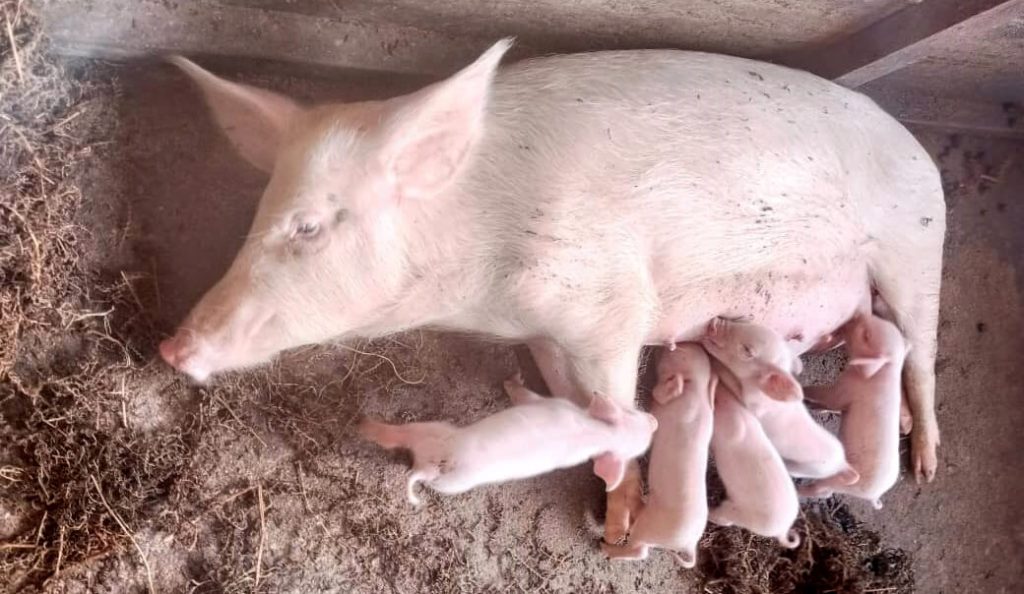
Through sustainable agricultural practices, such as cultivating crops and raising livestock like pigs, poultry, and rabbits using locally available resources, our work fosters capacity-building among local leaders. I believe that serving with God’s people in missio Dei is a profound calling that requires nurturing and cultivating what belongs to God, ensuring growth and fruitfulness.
Edmund Melusi Makowa, from Zimbabwe, earned a Master of Science Honors degree in sustainable agriculture and food security at the Czech University of Life Sciences, Prague, as well as a Bachelor of Science Honors degree in crop science at the University of Zimbabwe. He served for two years as a Global Mission Fellow with the Community Health and Agriculture Development (CHAD) in Cambodia.
Global Missionaries
Global Ministries missionaries are a tangible connection between The United Methodist Church and mission. Through denominational or ecumenical ministries, missionaries bear witness to God’s presence all around the world. They are called by God and sent out to serve by the church, usually placed in a new cultural context beyond their country of origin. Missionaries engage in ministry that is defined by mutuality and partnership, seeking to expand the mission of God already present and active in people and places. Explore the work of Global Ministries missionaries.
